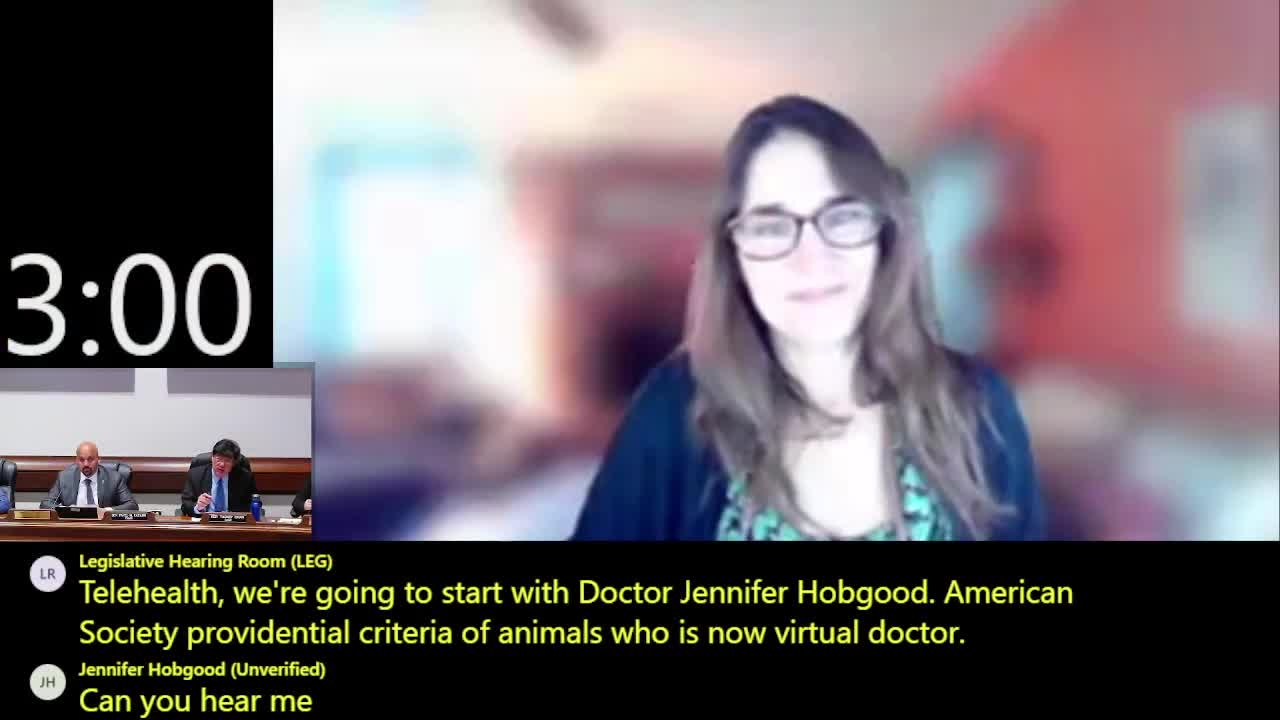Veterinarians and animal‑welfare groups split over bill allowing telemedicine to establish patient relationship
Get AI-powered insights, summaries, and transcripts
Subscribe
Summary
Witnesses for House Bill 3,355 said allowing veterinarians to establish a veterinary‑client‑patient relationship (VCPR) via telemedicine would expand access to care for seniors, people with disabilities and pet owners facing transport barriers. Veterinary associations and multiple clinicians warned that video exams cannot substitute for hands‑on
Supporters and opponents of House Bill 3,355 told the Joint Committee on Consumer Protection and Professional Licensure that telemedicine could expand access to veterinary care — but that it also carries clinical risks if it replaces an in‑person initial exam.
"This legislation provides an important policy switch that will safely open more access to care immediately upon enactment because it addresses a key outdated policy barrier, an arbitrary in‑person physical examination requirement," said Jen Hobgood, senior director of access to care policy for the ASPCA. She said telemedicine can help people who face transportation, mobility or scheduling barriers and cited examples such as prescribing anti‑anxiety medication to allow a fearful cat to be brought to a clinic for an in‑person exam.
Kara Holmquist of the MSPCA described community outreach clinics and said establishing a veterinary‑client‑patient relationship by audiovisual appointment would be "an important tool in the toolbox" to get pets into care. Dr. Erin Doyle, a Massachusetts practitioner, said telemedicine can allow safe management of some urgent problems without an immediate in‑person visit.
Opponents, including the Massachusetts Veterinary Medical Association and several practicing veterinarians, argued that the initial hands‑on examination reveals critical clinical information that cannot be captured on video. "During a physical exam we veterinarians assess a tremendous amount of detail... through our fingertips, our stethoscopes, and using our sense of smell — these are just not possible to do on a video call," said Dr. Monica Mansfield, past president of the Massachusetts Veterinary Medical Association.
Jamie Falzone, executive director for veterinarian members and students, told the committee that the current regulatory framework and AVMA policy require an in‑person VCPR before diagnosis; teletriage and teleadvice are already permitted after an in‑person visit. Several clinicians described cases in which physical findings, including heart murmurs, abdominal masses or severely dehydrated pets, would have been missed or misdiagnosed on video.
Testimony therefore split on whether the bill should be reported favorably. Proponents emphasized access for underserved communities and reduction in shelter surrenders; opponents warned of missed diagnoses and higher downstream costs for pet owners. The committee accepted testimony and written materials but did not take a vote.
